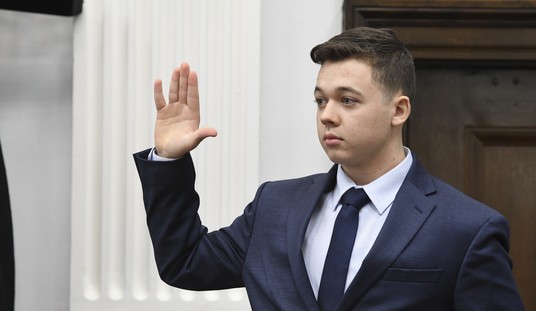The Lewiston mass shooting was an awful event, ranking up there with some of the worst mass murders in the modern era. No thinking person would claim otherwise.
Yet that’s where any level of agreement ends.
For many people, what happened that evening is a beacon calling for gun control.
I get it. It’s easy to think simplistically in the wake of something awful. Not many people have strong convictions one way or the other to start with on most issues, so it doesn’t take much to jar them into rethinking things. Considering the way the media sounds like a broken record pushing gun control as if there’s literally no other options just makes it worse.
And this op-ed is a prime example of that sort of “thinking.”
The best time to lead was before 18 Mainers were slain on Oct. 25; the second-best time is now. We know the tools that could better safeguard ourselves: a ban on assault weapons and large magazines, a red flag bill, a universal background check, a waiting period between gun purchase and delivery, and similar measures.
None of which, it should be noted, would have done anything to prevent Lewiston. Some argue that red flag laws would have, but Maine’s yellow flag law wasn’t used despite the killer being a prime candidate and there being ample evidence to use it.
So no, there’s not really any reason to assume a red flag law would have been used.
What’s more, it’s amusing how these same policies are the solution to just about every single gun-related ailment you could care to name. The solutions to suicides and domestic violence is also the solution to mass shootings–all incidents that have disparate causes but somehow, miraculously, have the same solution.
Congress knows them, too. So does each state where each new massacre occurs. Yet after the grim press conferences, the thoughts and prayers, the leaders appearing at community vigils, the most important tool — the one whose absence defeats, because it will always defeat, every vow of prevention — is political will.
Once again, we see the dedicated anti-gunner assume that everyone really agrees with him on the issue, they just don’t want to save lives. Yeah, that pisses me off.
The truth is that, as we’ll get into a bit, these measures don’t actually solve the issue. Gun control isn’t the answer and thus we support other efforts.
It does not have to be this way. Connecticut found the political will after Sandy Hook, Illinois found it after Highland Park, Florida adopted extreme risk protection orders (red flag) after Parkland, and Washington state acted after its own series of school killings.
First, let’s note that in most of these states, there weren’t a lot of mass shootings anyway. The fact that there haven’t been a ton after these measures were passed is kind of meaningless, especially as Highland Park was just last year. The fact that there hasn’t been another mass shooting doesn’t mean the measures Illinois passed actually worked.
Plus, I noticed he left Colorado out of the mix. They went on a gun control tear following the Aurora theater shooting, yet that didn’t stop the King Sooper’s shooting in Boulder nor the Club Q shooting in Colorado Springs.
In fact, one state he did mention, Florida, had the Jacksonville shooting despite those changes the author touted.
But most states, and Congress, have done little or nothing. Rather, gun massacres, alone among our public tragedies, seem to call forth a peculiar way of mourning: before the vigils disperse or burials end, gun purchases spike. The guardians of this deadly status quo swiftly deploy familiar bromides: the problem is not dangerous firearms but dangerously deranged people squeezing the triggers.
Actually, medical research shows that those with severe mental illness are responsible for 5 percent — or less — of mass shootings; more psychiatrists can’t protect us from the other 95 percent.
And that research is problematic because what we do see is a high likelihood that a mass shooter is being treated for something generally not considered a severe mental illness. They’re being treated for depression or anxiety or something that millions of other Americans are being treated for.
It just seems to most of us that mentally healthy people, even if that health is due to treatment, don’t go on a rampage with the intention to kill as many people as possible. It just seems like the kind of thing sane people don’t do.
Further, the author ignores all the other ways folks like me talk about ameliorating the mass shooting issue. For example, when we talk about hardening schools to combat school shootings, we get people like this lashing out for even suggesting it.
I remember David Hogg and the Parkland bunch getting their knickers in a twist because the school started requiring clear backpacks–a security measure that many might not be fond of but should be able to understand why it’s in place.
And let’s not get anti-gunners started by pointing out that most of these shootings happen in gun-free zones, thus illustrating the benefit of armed citizens. Their heads would probably explode
The truth of the matter is that what happened in Maine was awful, but it was also a black swan event. Most states, contrary to what some places like to claim, don’t have mass shootings on a weekly basis or anything of the sort.
Maine, one of the safest states in the nation, doesn’t need to trip over itself passing gun control rules over something that had never happened before and is unlikely to happen again. Congress doesn’t need to infringe on our rights, either.
There are better ways forward.








Join the conversation as a VIP Member